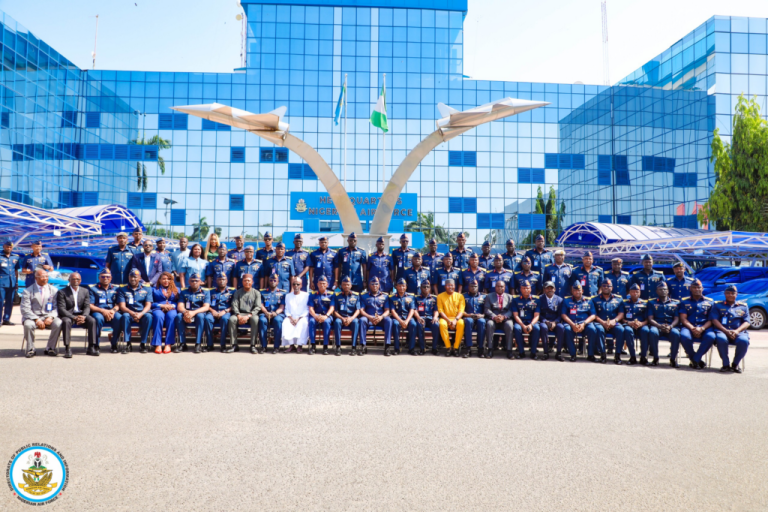From Molly Kilete, Abuja
The Chief of Air Staff (CAS), Air Marshal Hassan Abubakar, has charged personnel of the Nigerian Air Force (NAF) to embrace cybersecurity as a personal responsibility and integrate it into their daily operations.
He emphasised that the integration of technology into warfare has ushered in a new era where digital assets—bits and bytes—are as significant as physical weapons like bullets and bombs.
Abubakar made this statement at the opening of a cybersecurity awareness training organised to enhance the cyber defence capabilities of NAF personnel with advanced knowledge and practical skills.
He stated that the integrity of the nation’s defence systems, the security of its communications, and the protection of data depend on the strength and resilience of the country’s cybersecurity framework. The NAF Chief further pointed out that cybersecurity is crucial to operational readiness and the success of NAF missions, highlighting the importance of training as part of national security in a world where artificial intelligence and advanced technologies are key players.
He said, “For the Nigerian Air Force, which has distinguished itself as more technologically advanced than other services, cybersecurity is not just an IT concern—it is the foundation of our operational readiness and key to mission success. This programme marks another milestone in my command philosophy to transform the Nigerian Air Force into a cyber-aware, cyber-agile, and cyber-resilient force that effectively meets national security demands across operational environments.”
Abubakar also noted that the nation had recognised the importance of cybersecurity through the National Cybersecurity Policy and Strategy. This policy outlines a framework for securing Nigeria’s digital environment in line with global best practices. He referred to the establishment of sectoral Computer Security Incident Response Teams (CSIRTs) and Cyber Security Operations Centers (SOCs), aimed at providing rapid responses to cyber incidents across key sectors.
The NAF Chief mentioned that, in line with national policy, the NAF had restructured its Communication and Information Systems (CIS) Branch to include a Cybersecurity Operations Cell (COC) within the Directorate of Information Technology (DIT). He reaffirmed the NAF’s commitment to the national vision, with the workshop serving as an essential part of efforts to ensure personnel are equipped to protect the nation’s digital infrastructure.
He explained the growing importance of cybersecurity, especially in light of global events that have demonstrated the severe consequences of cyberattacks. These attacks can disrupt critical operations and jeopardise national security. He emphasised the vulnerabilities of the NAF’s operations, such as the reliance on secure digital communications for unmanned aerial vehicles and risks posed to the Nigerian Air Force Integrated Management System (NAFIMS) and the Digital Correspondence (DIGCO) application, also known as the “Paperless System.”
Abubakar stressed the objectives of the workshop, noting, “This workshop is designed to strengthen our cyber defence capabilities by providing participants with advanced knowledge and practical skills. Over the next few days, you will work with experts who will offer valuable insights into real-world challenges and solutions. From understanding the dynamic nature of cyber threats to adopting best practices for safeguarding sensitive information, this training will prepare you to be vigilant and proactive.”
He further reiterated that cybersecurity is a shared responsibility. “Each of us, whether at the command level or in operational units, must adopt a mindset that prioritises security at every level. Vigilance, discipline, and strict adherence to protocols are crucial for protecting the integrity of our systems and ensuring mission success.”
Air Marshal Abubakar concluded by urging personnel to take ownership of cybersecurity: “Embrace it as a personal responsibility and make it an integral part of your daily operations. Cybersecurity is a continuous journey that demands vigilance, ethical conduct, and commitment to safeguarding our nation’s digital infrastructure. Apply the knowledge you gain here with a purpose and keep yourself abreast of evolving trends in cybersecurity.”
